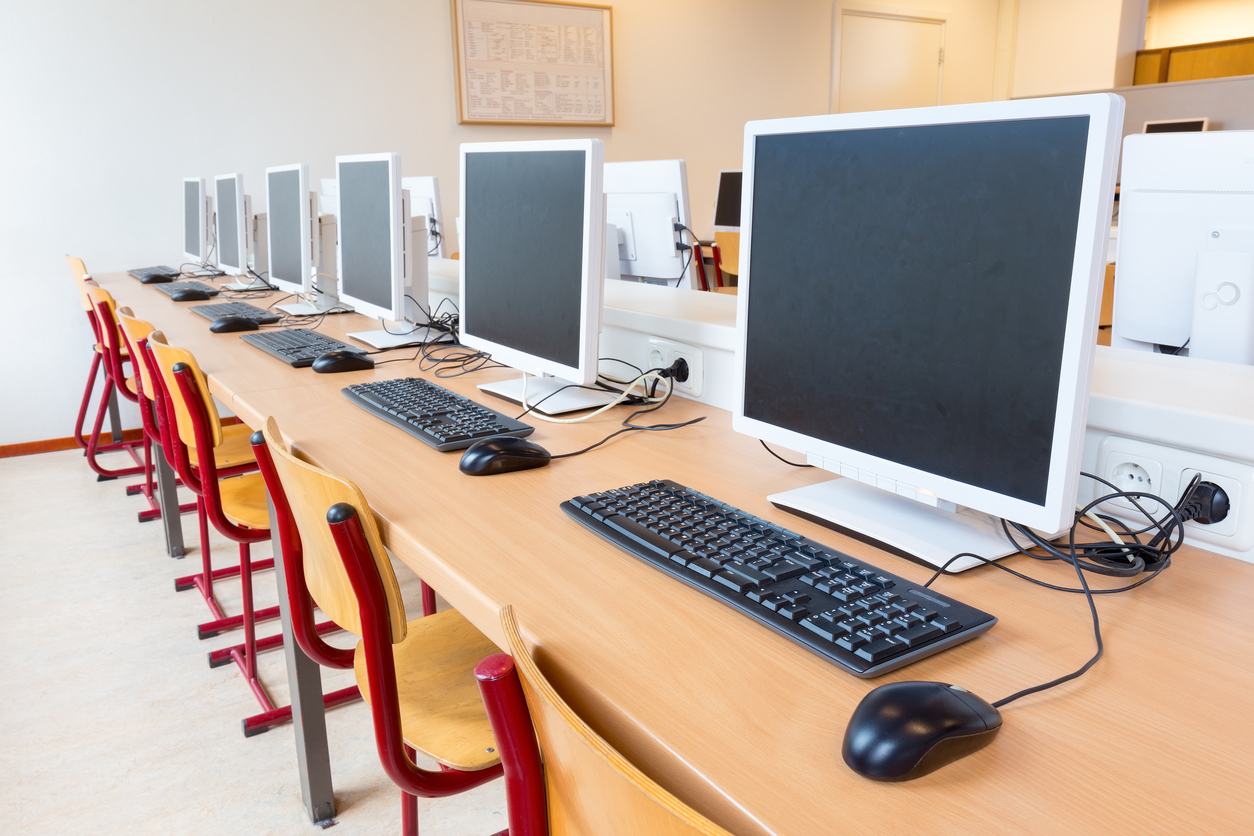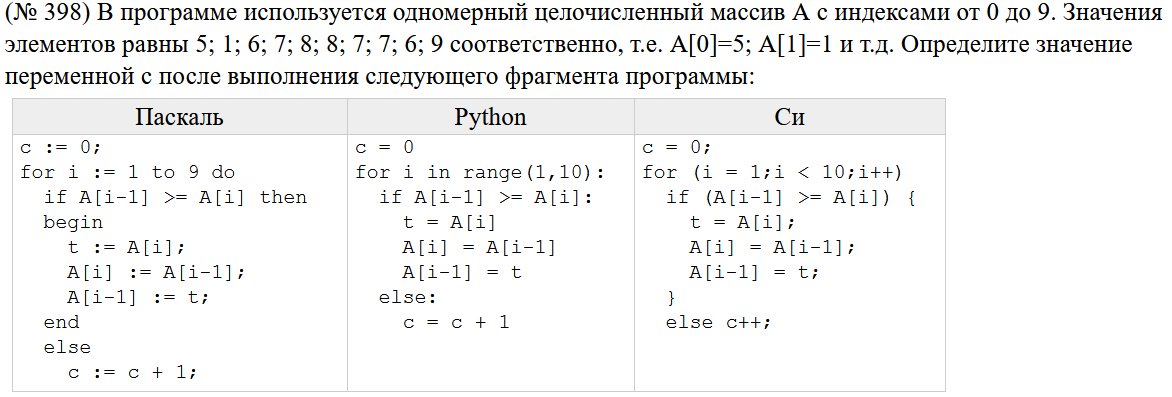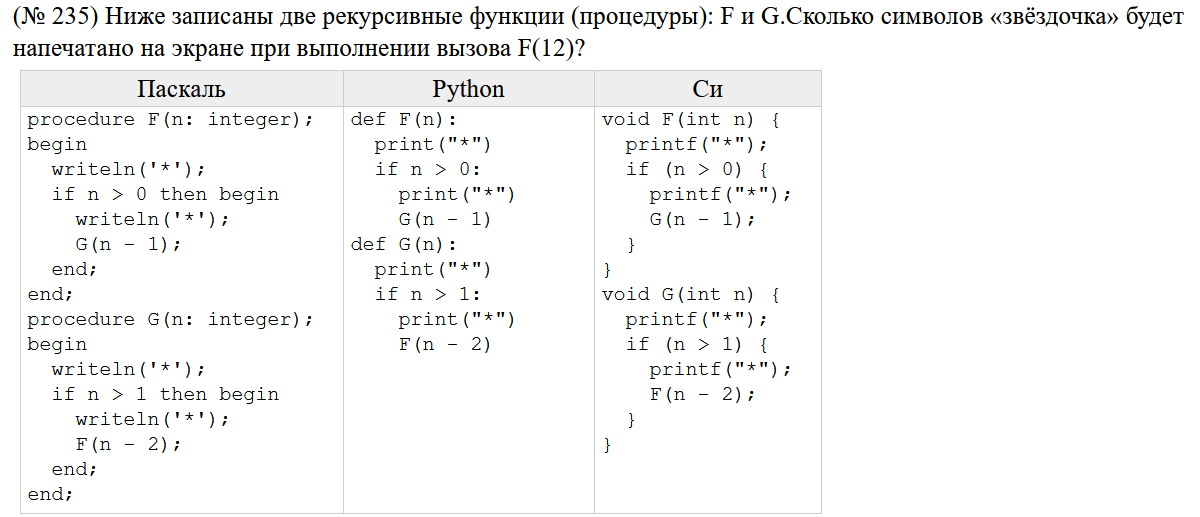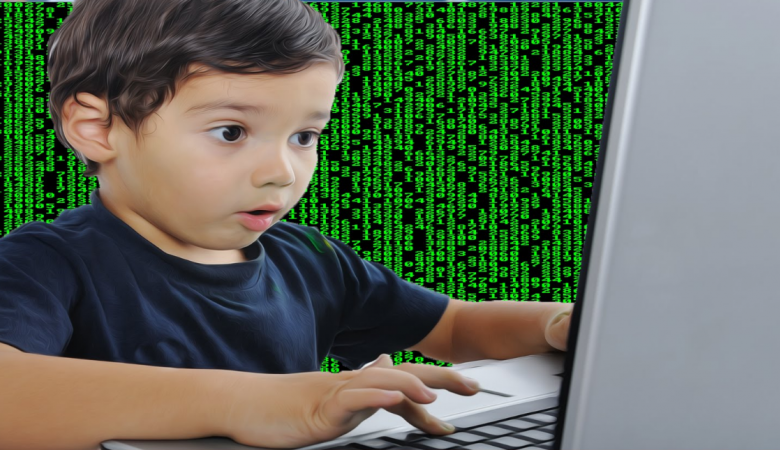
Why I decided to write on this topic
Initially, I did not plan to write this article, because I thought that hardly such information could be of any interest to anyone. And how surprised I was when I found out that many are curious to delve into this area. For example, how is training in programming now. Or can the teacher help the student learn a language other than the standard for the Pascal ABC school curriculum, provided that it is not a specialized lyceum, where PLs are taught from elementary school(and after all such educational institutions are present in almost every city, but not every student has the opportunity to get there).The beginning began.I see this article as an approximate reflection of the lessons of computer science in an ordinary comprehensive school, and what an ordinary student faces if he passes a single state exam in this subject. And one more reason has recently appeared. All my exams were postponed for a month, so I preferred to remove the growing tension with ... amm of creativity, probably, if you can call this daub from letters that I see now. And I apologize in advance for tongue-tied tongue and other crap that can make it difficult to read (I'm sure there will be punctuation, spelling, or factual errors) and really hope you enjoy it.Introduction
Probably worth starting with who I am to write something on this topic. I am a student of the 11th grade secondary school, in which two computer science teachers work, as expected, with a completely different approach. So, it is precisely because of these two different methods that I experienced on myself during the entire training period that I had a certain opinion that I would like to share.My opinion about computer science lessons at MBOU SOSH
First of all: most teachers are interested in teaching strictly as part of the school curriculum. It is understandable, they are paid for it. So if a student has a desire to learn something new, then he should always say so. But it is not a fact that the teacher will support such aspirations, or even give advice. But sometimes it happens that the teacher himself expresses a desire to teach students something that goes beyond the framework of the educational process, but, unfortunately, this happens infrequently. This practice is not carried out in my school.What is the exam in computer science
Now this exam is a mixture of mathematics, algebra, logic and programming. Of course, the school provides the basis for passing this exam. But only the first part, which is 72 points, which is catastrophically small and not enough to enter a good university, especially if you do not score the desired 100 points in other subjects (and this is if the university does not have a certain bar in the number of points for each subject, which is often present). And then, to get the same 72 points, you need to have an understanding of recursive algorithms, one-dimensional arrays, and other smart things that can be passed in passing at a lesson or not at all. Of course, this is not all 72 points, but at least half of them are exactly those who give and receive.The second part consists of 3 programming tasks and one on number theory. And in the end it turns out that to solve more than half of the tasks, you just need to know programming. But knowledge on other topics is also necessary.Sample tasksWell, here are examples of numbers that are similar to those included in the options:No. 1)  No. 2)
No. 2)  No. 3)
No. 3)  No. 4)
No. 4) At the end of the article there will be answers, you can check yourself and write how many and which of the numbers you decided correctly
At the end of the article there will be answers, you can check yourself and write how many and which of the numbers you decided correctlyProgramming in the classroom, or the story of how the Pentagon was hacked instead of computer scientists by the humanities
 Grade9 or Groundhog Day First, you need to describe the lessons before grade 9, and only then write about the main action. I don’t remember telling us in detail what arrays are, how to work with them, or how the program iterates in principle. Instead, we solved many examples of translating numbers from one number system to another, or problems of transmitting information over a communication channel using different methods. In general, sometimes it was interesting, sometimes these were the next computer science lessons that we were hatching. Of course, any lesson is useful, but obviously for several years in a row transfusion of water is “about nothing”.But in the end, the 9th grade comes, and according to the training program, they began to “train” us to solve tests. This means that in the usual lessons, which were held once a week, the format of the lesson was only changed for those who took it. Now it was a monotonous resuscitation of the same numbers with which we started a couple of years ago, without the possibility of at least somehow escaping this mutual responsibility, while the rest of the students learned to work with computers, since only from the 9th grade they were entrusted to us .But the school year went on and on, and we, the handing over, solved all the same tasks from the first part, without even touching the second, where there were so coveted numbers with programming or commands for the robot. As a result, a week before the exam, I independently learned how to solve one number from the second part. And this was not programming, although each of the graduates read at least one YP. But I must say that someone still got acquainted with such an inaccessible discipline. These were students who did not even think closely about computer science, as well as about the exam. While the dealers diligently calculated how many megabytes per second in the communication channel, and how long a file with such a weight would be transferred, our classmates wrote simple programs with formulas, or wrote “trojans” from the Internet to compilers. But still it was programming, though not so hot. That is, we can say that we, as a class, have studied Pascal. But everyone who passed the OGE in the 9th grade could not write a line without an error, which many joked about.Time passed, and exams were passed. Someone entered other educational institutions, but some still remained to gnaw at the school granite of science. And here it is worth pointing out that in some schools of my city, after the 9th grade, there is not even such a subject as computer science. Thus, in order to learn something about the simple structure of the program, or about how it is better to declare variables, or about where and which conditional operators can come in handy, it was necessary to unselect the teachers from the school routine (or simply run after them with questions) and practically interrogate, but there is a high probability that the teacher himself may not know anything about the questions that he was asked.Well hello high schoolOne way or another, the tenth grade has come for me, during which we studied the problems of sound, picture and text. We can say that at a plus or minus decent level, each of those who passed the exam was studied only in the 11th. And then, with tutors or on their own. But even having basic knowledge, we did not proceed to the second part. The last time I was in a lesson (it was just a day before the quarantine was announced) we solved simple problems with logic and parsed not so simple recursive algorithms. But still, these numbers are in the first part, while in the second I sometimes figured out with 2-dimensional arrays (for example, in the second part, 2 numbers are allocated for solving problems using the code, one number with errors in the code, where and need to be fixed).
Grade9 or Groundhog Day First, you need to describe the lessons before grade 9, and only then write about the main action. I don’t remember telling us in detail what arrays are, how to work with them, or how the program iterates in principle. Instead, we solved many examples of translating numbers from one number system to another, or problems of transmitting information over a communication channel using different methods. In general, sometimes it was interesting, sometimes these were the next computer science lessons that we were hatching. Of course, any lesson is useful, but obviously for several years in a row transfusion of water is “about nothing”.But in the end, the 9th grade comes, and according to the training program, they began to “train” us to solve tests. This means that in the usual lessons, which were held once a week, the format of the lesson was only changed for those who took it. Now it was a monotonous resuscitation of the same numbers with which we started a couple of years ago, without the possibility of at least somehow escaping this mutual responsibility, while the rest of the students learned to work with computers, since only from the 9th grade they were entrusted to us .But the school year went on and on, and we, the handing over, solved all the same tasks from the first part, without even touching the second, where there were so coveted numbers with programming or commands for the robot. As a result, a week before the exam, I independently learned how to solve one number from the second part. And this was not programming, although each of the graduates read at least one YP. But I must say that someone still got acquainted with such an inaccessible discipline. These were students who did not even think closely about computer science, as well as about the exam. While the dealers diligently calculated how many megabytes per second in the communication channel, and how long a file with such a weight would be transferred, our classmates wrote simple programs with formulas, or wrote “trojans” from the Internet to compilers. But still it was programming, though not so hot. That is, we can say that we, as a class, have studied Pascal. But everyone who passed the OGE in the 9th grade could not write a line without an error, which many joked about.Time passed, and exams were passed. Someone entered other educational institutions, but some still remained to gnaw at the school granite of science. And here it is worth pointing out that in some schools of my city, after the 9th grade, there is not even such a subject as computer science. Thus, in order to learn something about the simple structure of the program, or about how it is better to declare variables, or about where and which conditional operators can come in handy, it was necessary to unselect the teachers from the school routine (or simply run after them with questions) and practically interrogate, but there is a high probability that the teacher himself may not know anything about the questions that he was asked.Well hello high schoolOne way or another, the tenth grade has come for me, during which we studied the problems of sound, picture and text. We can say that at a plus or minus decent level, each of those who passed the exam was studied only in the 11th. And then, with tutors or on their own. But even having basic knowledge, we did not proceed to the second part. The last time I was in a lesson (it was just a day before the quarantine was announced) we solved simple problems with logic and parsed not so simple recursive algorithms. But still, these numbers are in the first part, while in the second I sometimes figured out with 2-dimensional arrays (for example, in the second part, 2 numbers are allocated for solving problems using the code, one number with errors in the code, where and need to be fixed).Total
Probably, if the pandemic hadn’t happened so “on time”, our teacher would once have said: “Hey, guys, maybe today we will analyze task number 24. Do not know what it is? This is the same error number that you have heard so much about. ” But, we have what we have, there's nothing to be done. Deletion also did not contribute to advancement in the study of material, rather the opposite. Now, instead of weekly classes, we only have promises that we will begin to study soon. Something like this is now the case with teaching programming in a regular school. If you do not take the initiative, do not constantly ask you incomprehensible things, and do not study the manuals yourself or with a tutor (or any person who wants and can help you), then most likely you will start writing programs at the university. Unless, of course, you get there!Acknowledgments
Thank you very much for reading this article and for your patience in my writing style. I hope I am a little satisfied with your interest in this topic. If not, you can write me any questions in the comments, I will be glad to answer. You can also share your experience in learning the basics of programming or tips for beginners. I also want to thank you for your help and support: Taif Alimov, Anna Kangur, Elsa Stepanenko, Tatyana Nikiforova, Ellina Kastueva, Alexander Myzin and Julia Holnova.And finally, the answers:№ 1) 2288; № 2) 44; № 3) 4; № 4) 17;